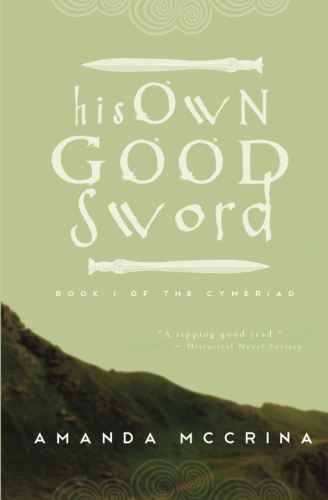 Only when I tried to compile this list did it really hit me that most everything—even and perhaps especially the classics—is derivative. Or, put more positively: everything is really telling part of the same story. Even the books I’ve chosen owe something to other books, other stories; I don’t think it’s possible to write without borrowing from what’s gone before. But there are unexpected ways of telling the story, or at least neglected ways; and these books did it most differently. (Different doesn’t necessarily mean better. Some of these books are favorites. Some are—not.)
Only when I tried to compile this list did it really hit me that most everything—even and perhaps especially the classics—is derivative. Or, put more positively: everything is really telling part of the same story. Even the books I’ve chosen owe something to other books, other stories; I don’t think it’s possible to write without borrowing from what’s gone before. But there are unexpected ways of telling the story, or at least neglected ways; and these books did it most differently. (Different doesn’t necessarily mean better. Some of these books are favorites. Some are—not.)
- Invisible Cities, Italo Calvino. A quiet, poetic book that’s merely a collection of brief descriptions of different fictional cities.
- The House of the Spirits, Isabel Allende. I hated this book at the beginning. By the end I loved it—though it’s hard, hard reading, admittedly. It’s a family saga set in an analogue of Allende’s native Chile. The women of the family have the ability to communicate with the dead, and this ability ties together the threads of the story over three generations.
- The Thanatos Syndrome, Walker Percy. I knew nothing about this book when I read it; I had no idea what to expect; and I’m still not sure how to classify it. It’s part medical thriller, part science fiction, part (very Catholic) discussion of the dangers of scientism and the loss of language. I can’t recommend it because it’s very disturbingly content-heavy, but it’s certainly memorable.
- The Remains of the Day, Kazuo Ishiguro. I wavered on this one, because on the surface it doesn’t seem very unique: “upstairs/downstairs” stories are perennially popular—see every BBC series ever made. But I’ve never read another novel that approaches the concept of duty quite as poignantly as this one does—and that’s having read more than my fair share of military fiction.
- Ceremony, Leslie Marmon Silko. There are very few books I know of that deal with the Native American experience in WWII. Fewer still are novels. And there are precious few books—novels or otherwise—that deal with PTSD during WWII. Make a Venn diagram of all that and Ceremony would be in the middle, very lonely.
- Brave New World, Aldous Huxley. Despite the flood of dystopian novels unleashed across the literary landscape over the past couple decades, none that I’ve read approaches what Huxley accomplished with Brave New World. Most attempt to recreate an Orwellian vision of oppressive totalitarian regimes—though, in decidedly non-Orwellian fashion, they envision these regimes toppled in the name of Freedom (usually by teenagers, and usually in first-person present tense). But Huxley’s vision—of a humanity that, rather than being unable to fight back, simply doesn’t care to fight back—remains the more haunting.
- I Am Legend, Richard Matheson. I wrote once that the book was superior to the film if only because, in the book, the title actually makes sense. While the film ends with Will Smith’s Robert Neville nobly sacrificing himself so humanity may survive, the book ends with the vampires inevitably winning the war (the book’s vampires aren’t the lumbering zombie-creatures of the film, but rather tactically proficient and well-equipped super-humans). In this new civilization, Neville is the dangerous creature of legend that must be eliminated. It’s actually quite a thought-provoking discussion of what civilization means, of how we define our terms.
- World War Z, Max Brooks. While we’re on the subject of creature-horror—World War Z makes the list not just because it’s a zombie story told after-the-fact in documentary form, which is pretty cool in itself, but because—in my reading, at least—the focus really isn’t the zombies themselves, but the global geopolitics of the event: how would Israel and Palestine and the Russian Federation and India react? Lots of novels have done the zombie apocalypse, but I haven’t read another that approached it on the macro level and did it so well.
- Lavinia, Ursula Le Guin. Retellings of classics are common, but not ones that pay so much attention and respect to the source material. Le Guin humanizes the characters, but she doesn’t try to modernize or excuse them; Lavinia’s conception of duty and destiny seems somewhat alien. But the use of poetry and Story is brilliant. (My favorite quote: “It is not death that allows us to understand each other, but poetry.”)
- Harry Potter and the Sorcerer’s Stone, J.K. Rowling. Yes, the series is derivative, both of other literature and of history; but I’ve never read another fantasy series in which the world came to life as it did in Harry Potter—in which the setting was almost a character in itself. Recently rereading the series just confirmed to me the intricacy and attention to detail of Rowling’s worldbuilding.




